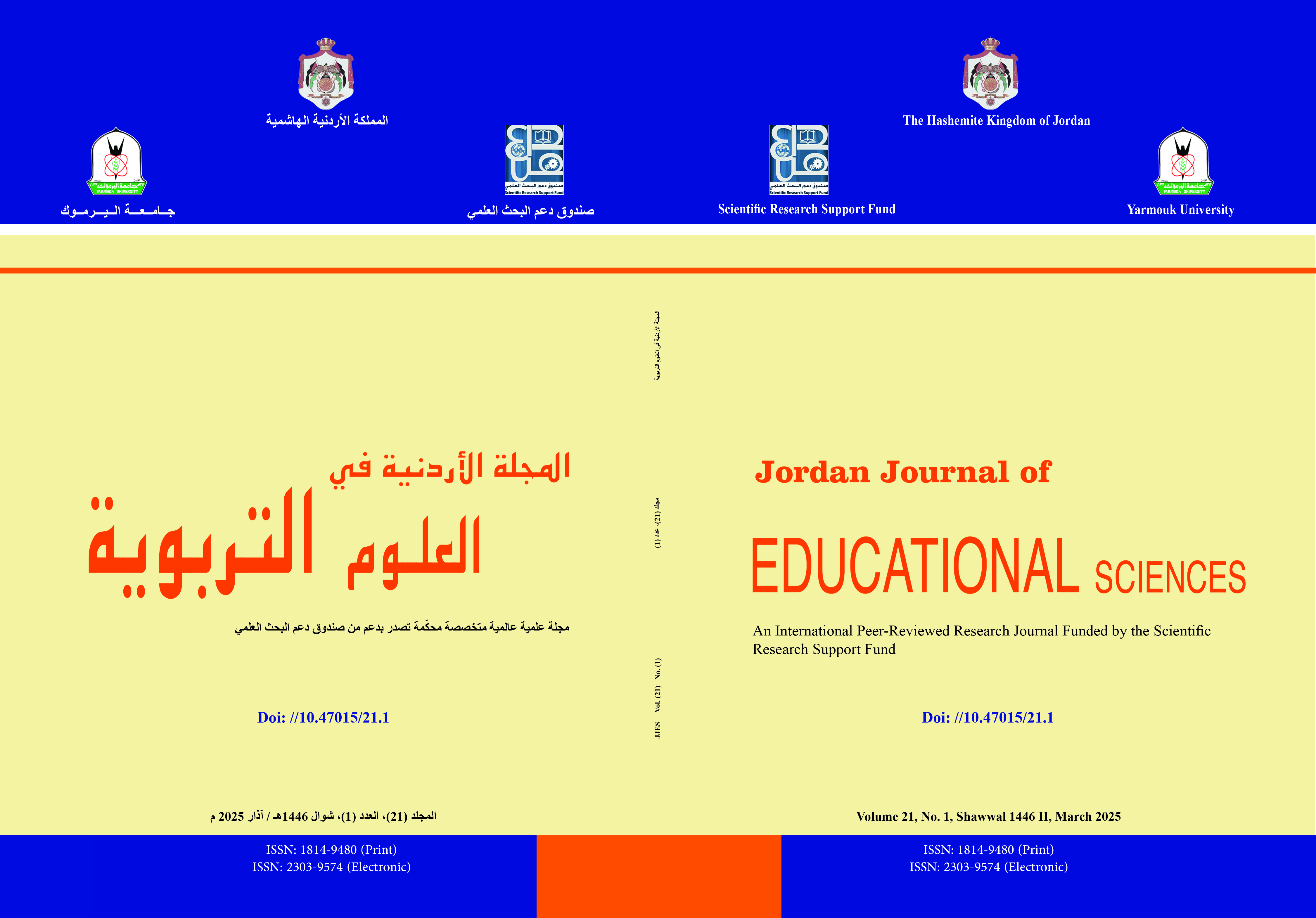Workers' Views on the Degree of Effectiveness of Licensed Early Intervention Programs and Services in Jordan and Their Relationship to Some Variables
DOI:
https://doi.org/10.47015/21.1.7Keywords:
Early intervention programs, Degree of effectiveness, Workers, Jordan .Abstract
Objectives: The present study explored workers' views on the effectiveness of licensed early intervention programs and services in Jordan, as well as their relationship to job title, experience, and geographical location. An 80-item scale was developed and distributed across eleven dimensions, with data collected from 86 workers in 16 of the 22 government and private licensed early intervention centers. Methodology: This study utilized a descriptive survey methodology. Results: Workers rated these programs and services highly, with the dimensions of organization and policies, service providers, family-based practices, child-based practices, curriculum, assessment, service coordination and cooperation, facilities and environmental accommodations, supportive functions, and transition and inclusion receiving the highest ratings. In contrast, assistive technology was rated as moderate. Significant differences were observed in the job title variable for the dimension of organization and policies, favoring workers in supportive roles (manager, social worker, psychologist, special education specialist). Additionally, differences were observed in the years of experience variable for the dimensions of family-based practices and curriculum, favoring those with over 10 years of experience. No significant differences were found based on geographical location. Conclusion: The study recommends enhancing the professional training and practices of workers in centers, conducting periodic evaluations of centers, and developing networking between various institutions to improve inclusion and transition services.

